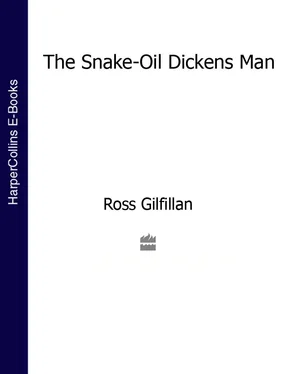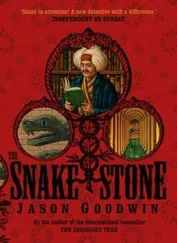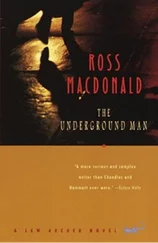‘I next found myself upon the cobbles and for a moment I thought myself cut and that my life blood must be seeping away towards the river. But I felt the fire of brandy in my throat and the face of the sailor was before me. “I’ll be damned,” he was saying. “A Yankee!”
‘He had a good heart, this Andrews and when I told him of my plight, he helped me to a tavern and watched me like a mother as I devoured a plate of lamb cutlets and potatoes. When I was much improved by the meat and the port-wine he made me drink, he bid me tell my story, which I did in full. He said I had been a fool and I said I could hardly argue that point and that my only wish was to return home to America. I might sink or swim there but I would be among my own, which I thought must be an infinitely more hopeful situation. I owned, however, that there was small hope of that.
‘Andrews only laughed, a big and booming laugh, that had the sailors and porters and prostitutes turning towards our table. “What a weak specimen of American manhood you are” he said, “to falter at such a low fence.” He called to a man at the bar, who was entertaining not one, but two ladies of the London night. “Jack,” he called, “I have an educated Yankee here, the very man for you.”
‘Later I would thank God for my fortune. Then, I only thanked John Andrews, for introducing me to Jack Fairchild, first mate of the passenger steam packet Britannia , due to set out from Liverpool for Halifax and Boston the next week and still in pressing need of a steward.’
Elijah paused and I wondered if he had finished for the day or had merely stopped to collect his thoughts. I was dead tired and my handwriting had become a record of my exhaustion. He took a breath and continued his story. There was a journey to Liverpool, a sea voyage and I thought I heard mention of Charles Dickens. But by then I must been dozing because the next thing I knew, Elijah was saying, ‘Enough, boy, enough,’ and lifting me upon the sofa, where I gave myself up to sleep.
IV
I was fairly blown along the road to town. The wind had gotten up while I slept and from the top of the hill I could see the fun that nature was having with man and his workings below. The big banners we had hung this morning were gone as was the bunting on the plaza. Small objects were chasing around in pockets of chaos and people were running about in the streets, for reasons I couldn’t guess at that distance.
Elijah had been incensed that when I awoke I had made feeble excuses and gone quickly, anxious that I was missing the arrival of Barnum’s show, but that was no matter; this was too big a deal to miss. There was no sign of any such event having occurred as yet. I crossed an empty plaza and was caught in a sudden blast that funnelled violently into Main Street, sweeping up a huge cloud of dust and straw, chaff and grit, hurling it against the offices of the Bugle and into the eyes of anyone who looked the wrong way.
Some part of the crowds of the morning could be seen through the windows of the saloon and in other places of refuge but hardier folk were on the street, appearing and disappearing in clouds of wind-born debris and mouthing words I couldn’t hear, because of the dreadful ruckus created by the wind as it whistled through fissures, loosened tin roofs and went searching for anything that wasn’t nailed down.
Women found their skirts turned sails and relinquished any choice of direction but the movements of a conspicuous party of men retained some purpose; they were darting this way and that and with bandannas and handkerchiefs covering their faces, they might have been a great gang of outlaws or a band of Confederate renegades, searching for a bank to rob.
One of their number separated from the pack and the dentist, Abe Oliver, was blown over my way. ‘Nice weather we got for Barnum,’ I hollered to him but he startled me by spinning me about and pinioning my arms behind my back. The cry went up, ‘They’ve got one of them!’ and many hands laid hold of me and hustled me along the sidewalk and into a sheltered alley. I was thrown to the ground and a crowd of townsfolk gathered about me, not one of them looking like he bore me any goodwill. I need hardly say that I was bewildered and not a little alarmed at this strange turn of events.
‘What’s the matter? Whatever’s happened?’
‘As if he don’t know!’ snapped Abe. ‘Where’s our money, you thief?’
Mrs Roop, the druggist’s wife was shouting into my face, ‘You’ll pay, you will. Every penny, you’ll pay!’
‘Where’s our money?’ went up again.
Someone at the back said, ‘Git a rope.’
‘I don’t know what’s going on,’ I cried. ‘What are you about?’ I must have looked white with fright, because someone else said, ‘Let up on him, Abe. Maybe he wasn’t in on this.’
‘On what?’ I cried and Judge Eckert, who had elbowed through the crowd and was now keeping the rougher elements from exacting their own justice on me, said: ‘We’ll find out the whys and wherefores in a proper place. Now, boy, let’s have the truth. Have you been a part of this?’
‘I don’t know what you mean,’ I said, ‘I’ve been with Elijah Putnam all afternoon. What’s happened?’
‘I’ll tell you what’s happened, boy. The men you kindly brought to this town don’t have nothing to do with P.T. Barnum. They’re guinea-droppers and sharpers and they just lit out of here with all the ticket money.’
He must have known I was innocent from the look on my face.
‘How do you know?’ I stammered. ‘Maybe they’ve gone to meet up with the circus.’
‘We just had a wire from Syracuse. They pulled this trick there last month. Those boys are long gone and our money with them.’
What could I say? I had been taken in as they had. We had all believed these nattily-dressed and sweet-talking gentlemen and I was the bigger fool than they. But because I had swelled myself up like the cock of the yard and had talked myself blue about Mr D’Orleans and acted like I had the ear of Barnum himself, I had done half these swindlers’ work for them.
Eckert could see that I was only a dupe and most of the faces I recognised were in agreement but many were by no means satisfied and I was shoved and kicked as I retreated before them out of the alley and into the windy street where I began to run, intent upon putting the shame of it all as far behind me as I could. But then someone coming out the hotel spotted me and hollered ‘There’s Billy Talbot making a run for it!’ and the bar emptied and it looked like I had half the town hard upon my heels.
I ran the length of Main Street, making hard progress against the tearing wind and saw that some of my pursuers had already left off the chase and returned to the bar but a gang of young bucks, no doubt hot with whisky, were gaining upon me, calling like hounds on the trail of a runaway slave.
I turned down a side street and leapt a fence and then another, trampling flowers and vegetables, my heart bursting and my breath short. I fled through the open gate of the brewery, vaulted barrels and lost precious moments as I located the gap in its back fence and then found myself on open ground, nothing but the distant hills and a great dark cloud before me. Still I was pursued: dangerous marshlands lay off to the east and from the west came the cries of another pack of hunters and so I ran on, hopelessly, unbelieving that this was happening to me, yet certain that a dreadful fate would overtake me at any moment.
‘We got him,’ someone shouted and finding myself on a road once more, I stumbled on, slowed by the wind that shot through my shirt and found ways through my ribs, and bowed my head down against the buckshot of wind-blown dust. I forced my way against the gale, my steps becoming leaden with fatigue and I knew that the end was near. I could go on no longer.
Читать дальше












